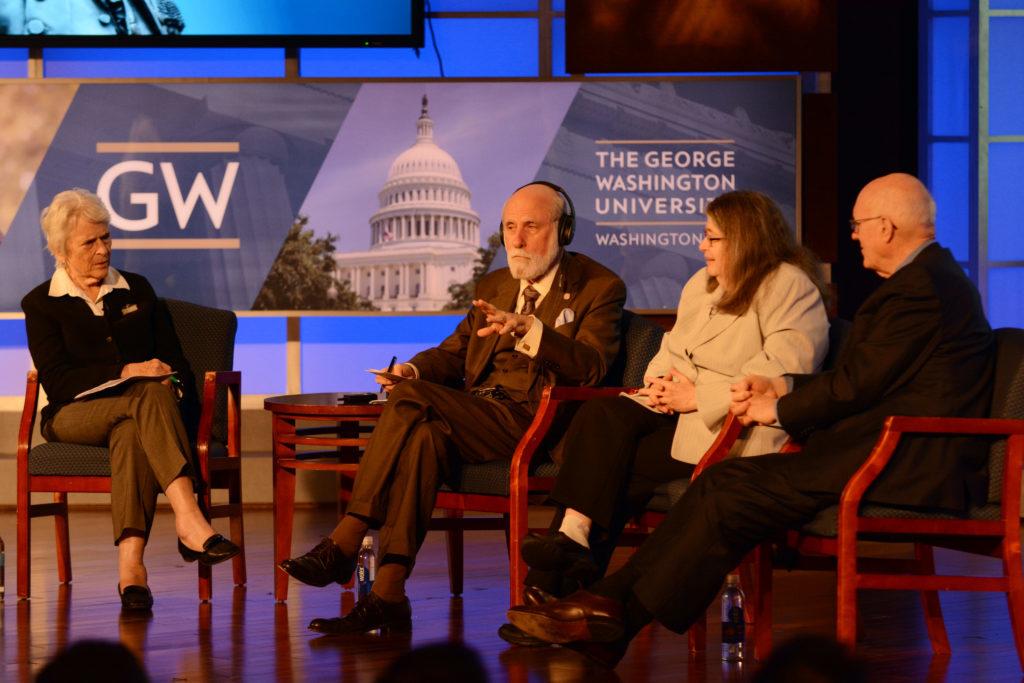Some of the internet’s original architects spoke about tackling disinformation online at the Jack Morton Auditorium Thursday.
A panel of three pioneers inducted into the Internet Hall of Fame discussed misinformation, China’s “Great Firewall” and how they helped shape the internet into what it is today in an event moderated by Shelly Heller, a research professor in the School of Engineering and Applied Science. About 160 people attended the event, part of the National Science and Technology Medals Foundation’s Science Unscripted program.
The panelists identified aspects of the internet, like the development of social media sites and search engines, that have surprised them. They said the internet was an experiment in its early days intended to be a laboratory model, but the network “escaped” and now has become an essential part of everybody’s life.
Vint Cerf, known as the “Father of the Internet,” said the internet has given the public a wealth of easily accessible information. But with that information comes the challenge of distinguishing between quality and inaccurate information, he said.
“It’s the price you pay for the access to this open system,” he said.
Cerf, now Google’s chief internet “evangelist,” said the ubiquity of the internet has been accompanied by conversations surrounding censorship in countries like China that restrict their residents’ access to certain websites. He said American tech companies like Google and Apple are grappling with ways to operate in these countries given their unique constraints.
“It’s a difficult business question for somebody looking at something like one-seventh of the world’s population as a potential business area,” he said. “You can’t shut your eyes to that.”
Radia Perlman – a network engineer who developed the spanning-tree protocol, a fundamental construct in computer science – expressed concerns about inaccurate information on the internet and said she was surprised by the creation of online bots that quickly spread misinformation. She said the internet allows everyone to be a reporter, making it difficult to tell what information is true.
“I was so excited about the internet like five years ago,” she said. “Now I think it’s going to be the death of civilization.”
Perlman said the public needs to view information online with skepticism because acting on false information could lead to dangerous consequences.
“The internet has brought us this far and is tethering on the edge of disaster,” Perlman said. “We need to solve these usability and security things.”
Steve Crocker – who was part of the team that created the protocols for ARPANET, the internet’s predecessor – said the internet’s worldwide reach impacts the international economy and the spread of information but added that the internet cannot bridge the cultural rifts between societies.
“We are living in a world that has evolved for many centuries with different societies, different standards, different values and different fundamental philosophy about the right way to organize things,” Crocker said. “I don’t anticipate that the internet is going to be the solution to problems that have existed many centuries prior to the internet.”
Crocker said the internet is still an experiment on the effects of connecting people worldwide in a space where they are largely free to share their thoughts at any time. He said the experiment’s results are mixed but added that he is optimistic about a future where nations find a way to regulate the internet and accommodate its purpose as an essential tool in a democracy.
“I remain a bit hopeful, as a society, as a species, that we will learn and accommodate how to deal with this technology,” Crocker said.





